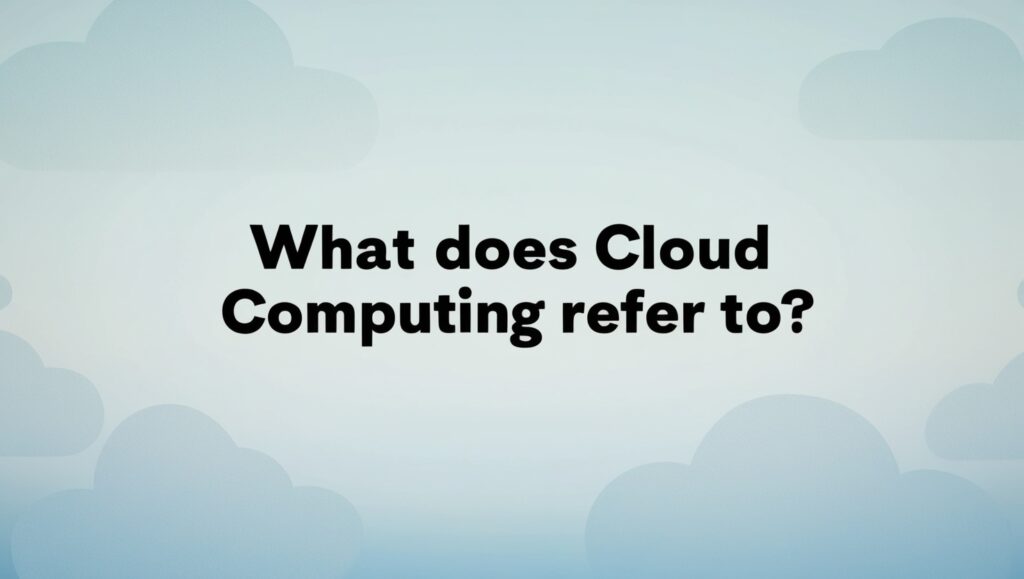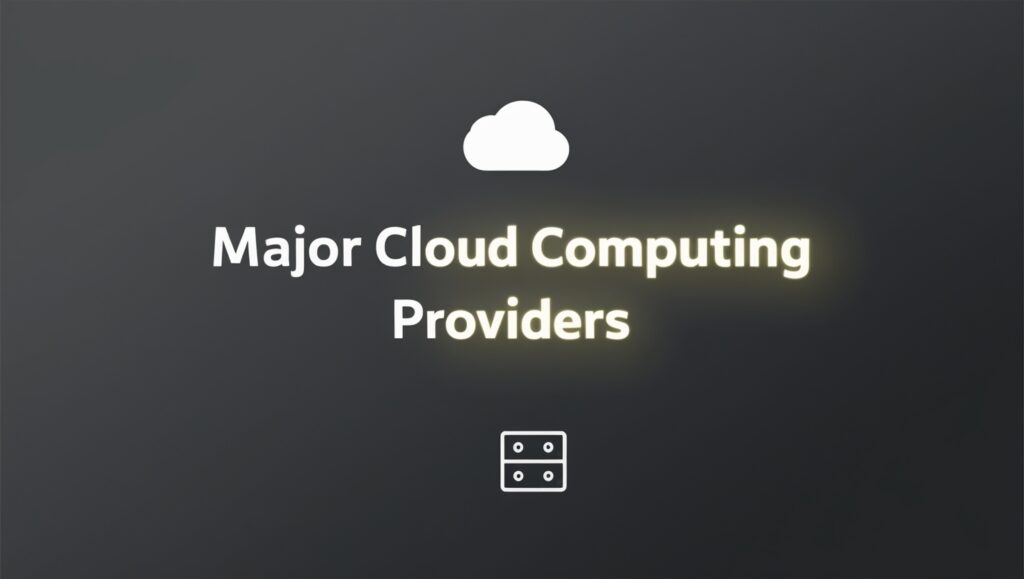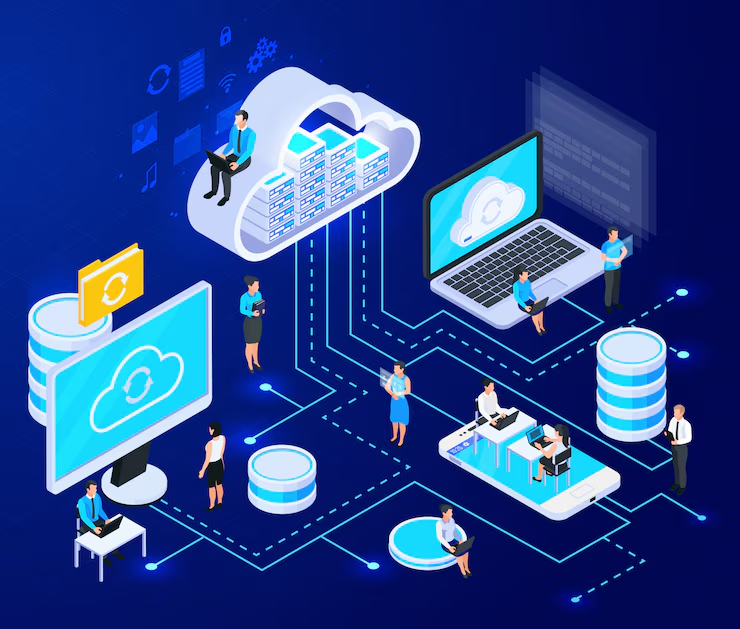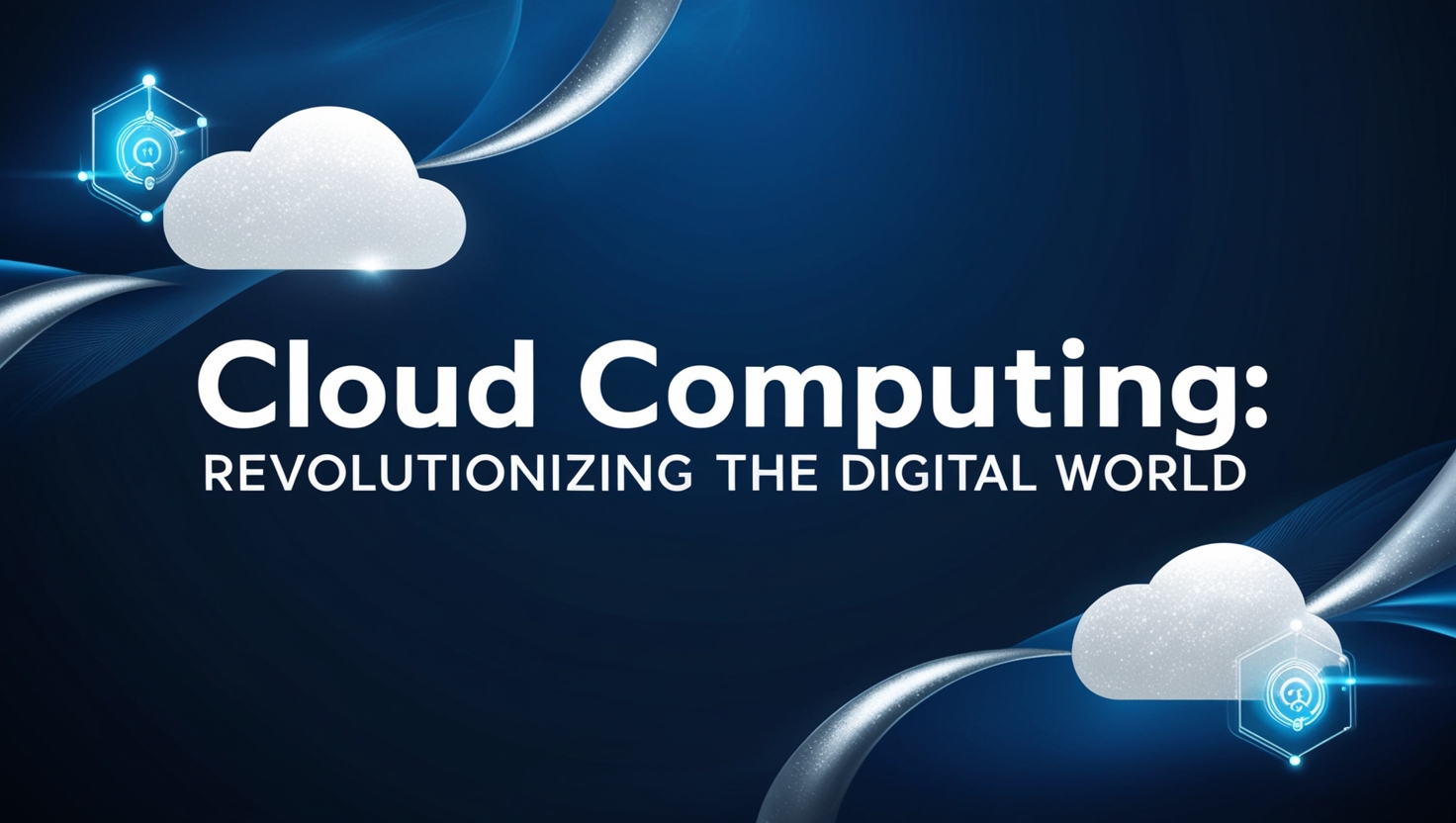Today, with everything happening so quickly online, cloud computing is playing an essential role in transforming many sectors. It has altered how various groups, persons and organizations save, retrieve and control their information. With cloud computing, people can easily share documents or run and manage more involved applications on a flexible and budget-friendly platform.
What does Cloud Computing refer to?

Through cloud computing, computing services like servers, storage, databases, networking, software, analytics and intelligence are provided online (“the cloud”) to help users accomplish things faster, access what they need easily and save on costs. Enterprises can use anything from software applications to internet storage by renting it from a cloud provider, rather than investing in their own computers and servers.
In other words, rather than saving data and programs on your computer’s hard drive, you do it through the Internet.
Types of Cloud Computing
There are three main types of cloud computing, each suited to different business needs:
| Type | Description | Examples |
| IaaS | Infrastructure as a Service. Provides virtualized computing resources over the internet. | Amazon Web Services (AWS), Microsoft Azure |
| PaaS | Platform as a Service. Offers hardware and software tools over the internet. | Google App Engine, Heroku |
| SaaS | Software as a Service. Delivers software applications over the internet on a subscription basis. | Gmail, Dropbox, Salesforce |
Ways to Set Up Cloud Services
Companies can use cloud services in numerous ways, based on their requirements.
- Public Cloud offers services accessible over the internet to all users (for example, AWS or Microsoft Azure).
- A Private Cloud is created solely for an organization to use. Provides more control and extra security.
- On a Hybrid Cloud, public and private clouds are merged, so data and applications can be moved from one to the other.
Major Cloud Computing Providers

Below is a table of some of the top companies that offer cloud computing services, along with a brief description of their offerings:
| Provider | Description |
| Amazon Web Services (AWS) | The leading cloud platform offering IaaS, PaaS, and SaaS solutions for computing, storage, AI, and more. |
| Microsoft Azure | A comprehensive cloud platform by Microsoft that supports various services including virtual machines, AI, and DevOps tools. |
| Google Cloud Platform (GCP) | Offers cloud services focused on data analytics, machine learning, and scalable infrastructure. |
| IBM Cloud | Provides IaaS, PaaS, and AI solutions with a focus on hybrid cloud and enterprise needs. |
| Oracle Cloud | Known for its database services, also offers full-stack cloud solutions including SaaS, PaaS, and IaaS. |
| Alibaba Cloud | A major cloud provider in Asia offering scalable computing, database, and storage services. |
| Salesforce | Specializes in SaaS with a focus on CRM, sales, and customer service tools. |
| DigitalOcean | Provides cloud services optimized for developers and small to mid-sized businesses. |
| VMware Cloud | Offers hybrid and multi-cloud services built on virtualization technology. |
| Tencent Cloud | A growing provider in Asia offering cloud services for gaming, streaming, and social media platforms. |
Pros of Using Cloud Computing
Many benefits come with using cloud computing such as:
- Economic Sense: Makes software more budget-friendly and allows you to pay monthly.
- You can add more or fewer servers as demand changes.
- High-performance is possible thanks to the vast coverage of international links.
- Speed: via AWS, it only takes little time and effort to launch services.
- Advanced security and rules for compliance are included.
- Allows for backups and quick recovery in case of any disaster.
Problems in using Cloud Computing
On the other hand, there are some problems that come with using cloud computing.
- Outages: Occasionally, cloud systems are not available for use.
- Risk to Security & Privacy: Putting important information away from the business is risky.
- The user does not have full control over the infrastructure.
- Following the Rules: Each region may have different rules for handling data.
Real-World Applications

Many industries make use of cloud computing.
- Medical field: Securely managing and reviewing records of patients.
- Online schools and Google Classroom.
- Finance: Detecting fraud and analysing information in real time.
- Retail: Providing individualized shopping services and managing the store’s stock.
Where Cloud Computing is Headed
The cloud computing field looks destined for great results in the future. Edge computing, serverless solutions, AI and quantum computing will keep changing the way technology is used. Cloud technology’s growth is expected to skyrocket and those businesses using it can move forward and compete effectively.
Conclusion
Nowadays, using cloud computing is necessary rather than being a luxury. Businesses of any size, as well as individuals, can rely on the cloud to help them become more innovative, improve efficiency and save on costs. Cloud computing will still be the central part of the digital transformation process as new technologies emerge. Read more about Cloud Computing















